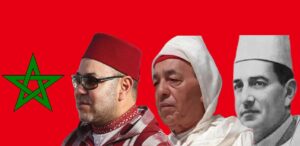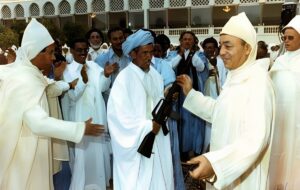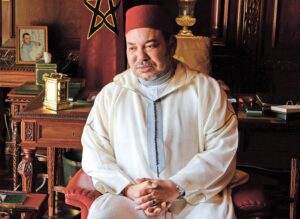The Era of Mohammed VI... First: The Philosophy of Governance... When Courage Meets Foresight!
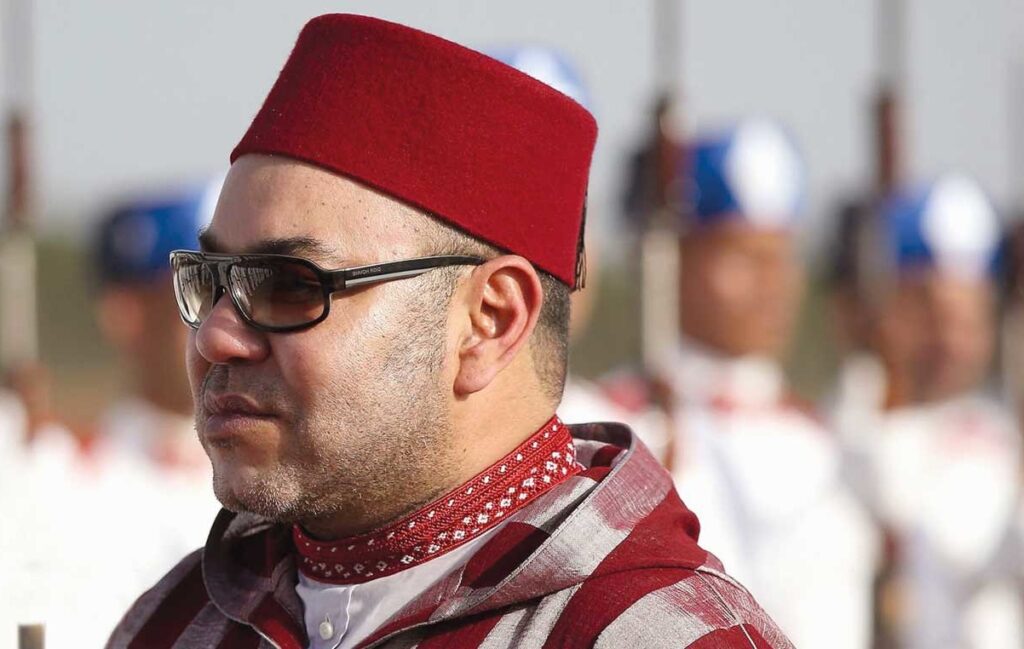
We have always read that the Kingdom of Morocco is the oldest continuously operating monarchy on the planet, and that the current ruling family (the Alawite dynasty) is considered the second oldest in the world (after the Japanese). This long history led our northern European neighbors, even in the heyday of their power, to call this long-established kingdom the “Sherifian Empire.” However, the modesty of Moroccans has meant that, since the beginning of the sixteenth century, and specifically since the founding of the Sharifian Saadian state in 1510, they have been content to call Morocco the “Sherifian Sultanate.” This name, along with the Sharifian Alaouite state, was transformed into the “Sherifian Kingdom” in 1665, until it was replaced by the current name, the “Kingdom of Morocco,” in 1912, when the era of the “French protectorate” officially began.
Why do we provide this historical introduction? To highlight a very important fact: that a country of such antiquity and entrenchment, and a people of such “weight” and pride, have, throughout its history, obliged all major powers to deal with it as an equal, unlike other Arab countries, which, despite the historical antiquity of most of them, their subordination to the various kingdoms that ruled the Arab region, has not allowed them to accumulate this “imperial” sense of “independence” and “greatness”!
Hence, as Moroccans celebrate the 26th anniversary of His Majesty King Mohammed VI's accession to the throne, we have chosen to conduct a quick and comprehensive "stocktaking" of what can be called the "era of Mohammed VI." His reign truly represents a distinct and significant period in Moroccan history, despite the difficulty of establishing a precise dividing line between his reign and that of his late father, King Hassan II, and those who preceded him. This accumulation is the most prominent feature of "the oldest monarchy in history," which has allowed it to occupy the position it currently occupies and legitimizes its ambition to regain its status as an empire or Sharifian sultanate, as it was throughout its history. Europeans' awareness of the unique nature of the "Sharifian Empire" made one of their most prominent goals, even before their colonial conference in Berlin in 1878, the siege of the Sharifian kingdom and an attempt to geographically "confine" it between "French Algeria" and the Atlantic Ocean, leaving the Sahara to the south to complete this natural siege, hoping to successfully sever Morocco's ties to its eastern extension and its southern depth with sub-Saharan Africa. This strategic goal was the most prominent bet of the colonial policy towards the Sharifian Sultanate, and unfortunately, its success in the East was completed by the hands of the partners in the struggle and blood brothers, the rulers of Algeria, who have kept the land borders with Morocco closed since 1994 (31 years), in addition to their closure from 1976 until 1988. In other words, during the last half century of independent Algeria, its land borders with Morocco were only opened for six years (1988-1994)!! And thus, its land links with the rest of the North African countries were severed. Doesn't this agreement between the policy of the Algerian regime and the policy of the French colonizer raise dozens of question marks?!
Therefore, when placing the "Era of Mohammed VI" in context, we must not invoke the economic, political, and social difficulties it inherited, but rather the surrounding international context, particularly the "ambiguous" relationship with France and the unstable regional and continental environment. Therefore, in addition to prioritizing strengthening the internal front, the one sitting on the throne of the honorable kingdom must give equal importance to resolving the artificial conflict over its territorial integrity and closing the issue of the Moroccan Sahara, which the major powers have long used to blackmail and weaken Morocco. They have never genuinely pushed to end this issue, which is ultimately a Moroccan interest that contradicts Western interests. An observer who examines where Morocco stood in the imbalanced power equation with the "world's great powers" at the beginning of the current millennium, and where it is today, a quarter of a century later, will notice a huge difference that those who have not lived in Morocco during these years cannot comprehend.
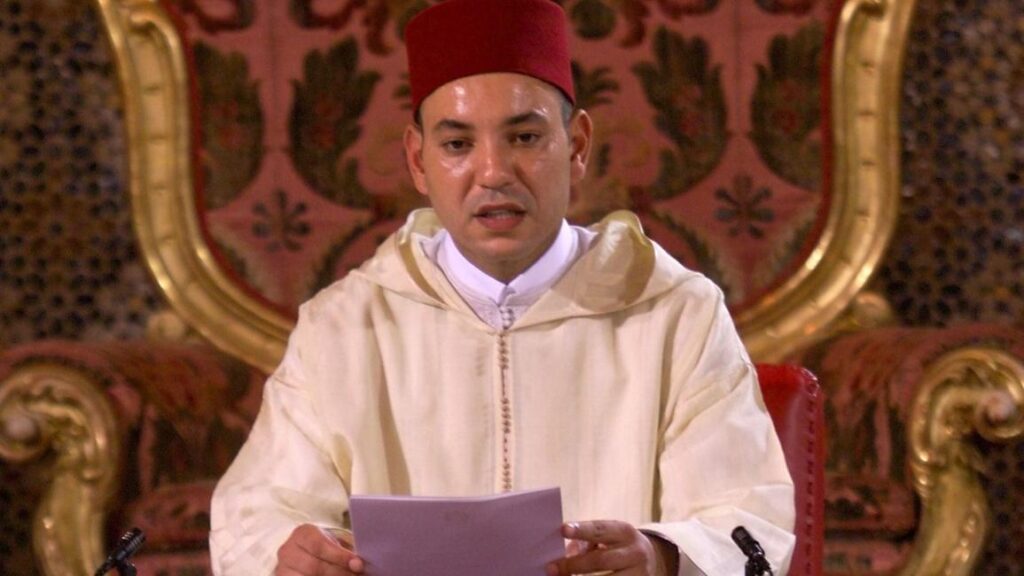
Putting the house in order was an absolute priority for the young King Mohammed VI at the beginning of his reign. He laid out the “new concept of authority” in his speech in Casablanca on October 12, 1999 (nearly 70 days after assuming power). There, he established a completely new doctrine (specifically for Arab regimes, whether republican or monarchical), transforming the relationship between the authorities and citizens from one based on influence and control to one that serves the citizen, respects the law, and operates with transparency and accountability, with an emphasis on comprehensive development and decentralization. This courageous step laid the foundation for a step that was unimaginable (particularly in the Arab context since the Caliphate!!) namely the official state recognition of responsibility for the human rights violations that took place during the so-called “Years of Lead”, through the establishment of an independent body (the Equity and Reconciliation Commission) that revealed the fate of hundreds of the disappeared, documented the testimonies of the victims, made amends, and compensated them for these violations. The case was closed by King Mohammed VI receiving many of the victims’ families at the Royal Palace, listening to their suffering, and emphasizing the need to close the case with a true national reconciliation, while emphasizing that it cannot be repeated.
This exceptional courage culminated in a third milestone, the 2011 Constitution. Unlike other Arab leaders who underwent the same experience, King Mohammed VI protested for only 17 days before declaring in a March 9 speech the necessity of drafting a new constitution that would translate the country's desire for political reform, rather than merely amending some of its provisions, as some activists of the February 20 movement demanded. This constitution paved the way for a second rotational experiment that brought moderate Islamists into public office, after the first experiment, under the late King Hassan II, had given the socialists, led by Abderrahmane Youssoufi, the experience of managing public affairs from within the corridors of government management, rather than through newspapers and parliament seats!
This dimension of King Mohammed VI's personality (courage), which is evident in many situations other than what we mentioned previously, is inseparable from another dimension, which distances courage from turning into "recklessness" or "suicide"!! And that is the dimension of "foresight." The King, who realized that his country was unable to confront global powers without a solid internal position, worked to move from the stage of addressing imbalances to the stage of building an independent self and diversifying international relations, such that Morocco would transform within two decades into a major regional, continental and international player, with the interests of the major powers intertwined on its soil in a way that makes them keen on the stability of the noble kingdom to sustain these interests, which ultimately leads to the recognition of the enormity of the Moroccan role on the African and international arena and its importance, to the point that this role is difficult to "crush" or ignore. And that is what happened!!
King Mohammed VI, with his strategic vision, realized that the historic attempt to blockade Morocco would not be thwarted unless it was placed on the global trade map, through its most prominent tool, "ports." This led to the decision to establish the Tangier Med Port, which, in less than two decades, has become the third largest container port in the world! We are currently living in an era of replicating this experience in Nador and Dakhla, with slightly smaller experiments in Kenitra, Casablanca, Jorf Lasfar, and Agadir, which makes the land blockade of Morocco by geography and politics ridiculous. A port infrastructure has been reinforced by railways, a highway network, and an expansion of air transport, to the point where Morocco has become a player whose importance transcends its continental borders, and a presence on its soil has become a dream for any major global company, regardless of its specialty. In the remaining episodes of this series, we will continue to address the features of this forward-looking vision in the security, political, economic, social, and symbolic (soft power) fields.
In conclusion, when a forward-looking vision meets “imperial” ambition and is coupled with wise courage—these are the qualities that have come together in the personality of King Mohammed VI—the sky becomes the ceiling for Moroccan ambition, and the restoration of the “noble kingdom” to the status it has always enjoyed throughout its centuries-long history becomes only a matter of time!!



